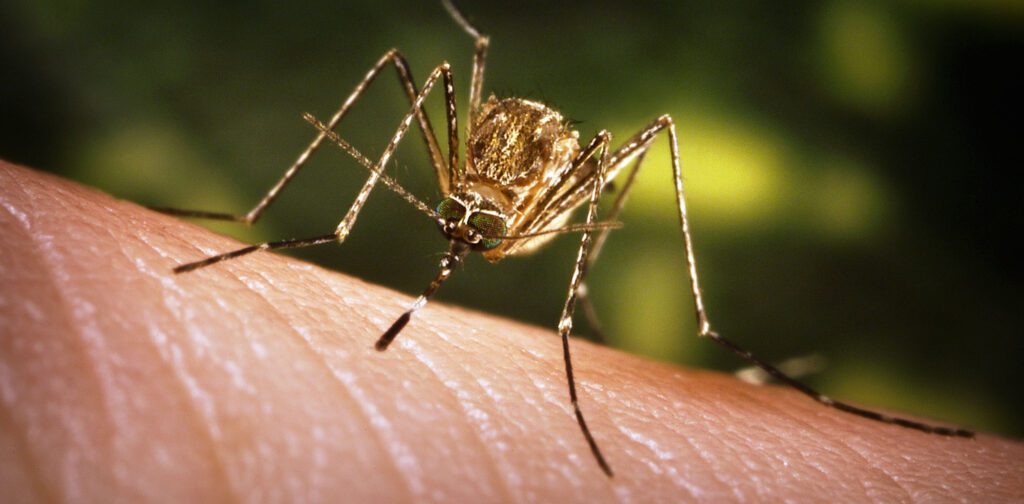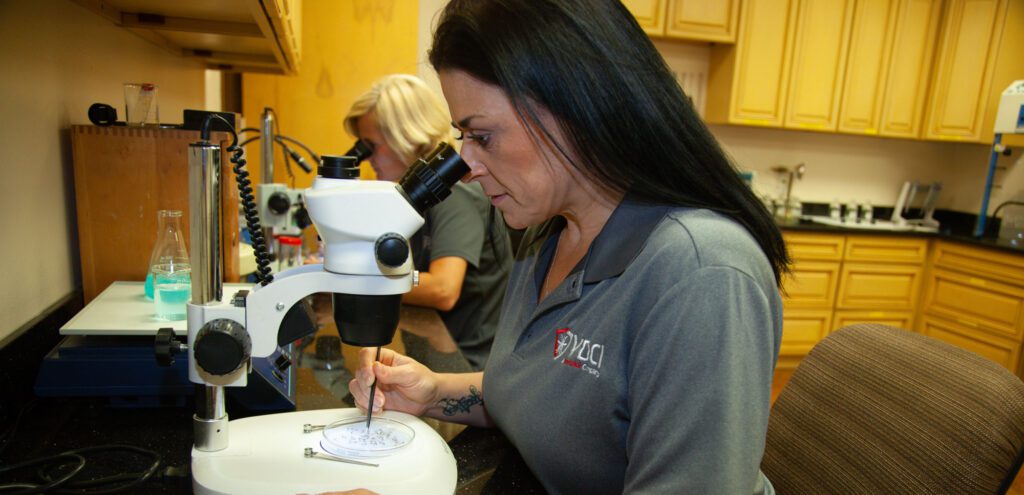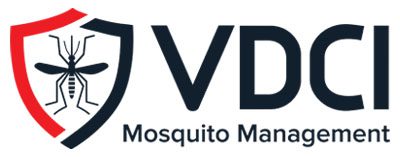Utilizing New Technologies to Protect Public Health
Over recent decades many mosquito-borne diseases have resurfaced or emerged and spread rapidly. From Zika, dengue to West Nile fever and chikungunya. Even malaria, which has had long-term global efforts to eradicate it has recently shown signs of increasing.
Many of these diseases have no specific treatment and the limited medicines available for some are facing resistance. Insecticides used to control mosquitoes are also facing resistance. On many fronts, innovations are urgently needed to control old diseases and prevent new ones from spreading.
Scientists in fields as diverse as biochemistry, genomics, entomology, computing, remote sensing, avionics, artificial intelligence, robotics, and aerospace engineering are combining their resources to develop new ways to fight diseases.
Here are a few examples of some recent scientific developments that are bringing a new dawn in the fight against the global threat of mosquito-borne diseases.
Fighting Insecticide Resistance with Next-Generation Insecticides
In recent decades Anopheles and Aedes mosquito populations in various parts of the world have built up resistance to many of the available insecticides and larvicides used for vector control. Without new products vector control is “doomed to failure”, according to IVCC.
Two new-generation insecticides were approved by WHO in 2017 and are being distributed in malaria areas for use in IRS programs by the NgenIRS project. Since 2016 the project has supported operations in 12 African countries and bought over 4.5 million bottles of the new insecticides.
New Odors to Attract and Repel Mosquitoes

Mosquitoes find human hosts by sensing the carbon dioxide we breathe out. But when they get close they locate sites for feeding by detecting volatile chemicals given off by human skin. Researchers at the University of California Riverside used modern chemical screening techniques to test half a million compounds in a chemical database to find those that could trigger mosquito sensing organs.
They chose two compounds that are already in common use, so don’t need lengthy and costly safety testing, to study further:
- ethyl pyruvate, which is a food flavoring with a fruity flavor: this was found to reduce Aedes aegypti attraction
- cyclopentanone, a mint-smelling flavor and fragrance: this was a powerful attractant for Culex quinquefasciatus mosquitoes
Robotics, Gene Sequencing, and Cloud Computing to Detect Diseases Early
Project Premonition is developing a high-tech system to identify potential disease outbreaks before they happen by capturing and analyzing the DNA of mosquitoes that have fed on local animals that could be reservoirs of diseases.
The project is a collaboration between Microsoft Research (MSR) and several U.S. universities. The project is developing:
- Autonomous drones that can locate mosquito hotspots in complex environments containing trees and buildings
- Robotic traps to collect and identify mosquito specimens
- Genomics, cloud computing, and machine learning algorithms to analyze the DNA and RNA in the mosquito samples
The genomics part of the project can already identify the correct mixture of organisms — animals, mosquitoes, and pathogens — with 99.9% accuracy.
Releasing Mosquitoes Infected with Wolbachia Bacteria
In July this year, the Commonwealth Scientific and Industrial Research Organisation (CSIRO) announced the successful results of a project that released millions of sterile male Aedes aegypti mosquitoes on the Cassowary coast in Queensland, Australia. The project uses new techniques developed by Verily (owned by Alphabet, the parent company of Google) for large-scale rearing, sorting out the males, infecting them with Wolbachia bacteria, and releasing large numbers of the mosquitoes. The Wolbachia prevents the females producing viable eggs.
Verily is also developing software, monitoring tools, sensors, and traps to indicate the mosquito hotspots where the treatment is most effective. The early results show that local Aedes mosquito populations were reduced by 80% – a promising example of the potential of new scientific developments in fighting the global threat of mosquito-borne diseases.
A Gut Feeling to Blocking Diseases
The midgut of mosquitoes is the initial site of infection for a range of diseases, therefore finding a way to block infections there will also block transmission to humans. Many research projects in multiple disciplines are looking at novel ways to do this, including:
Preventing Fungal Infections
Researchers at Johns Hopkins University in the U.S. found that a common fungus, Talaromyces, can infect Aedes aegypti mosquitoes and make them more susceptible to the dengue virus. The researchers also found that a Penicillium fungus made Anopheles mosquitoes more susceptible to infection with the malaria parasite. The research suggests that antifungal solutions are a potential alternative to insecticide spraying to protect mosquitoes from diseases they might spread to humans.
Biochemical Modification of the Mosquito Gut
Another study at Colorado State University has made the first comprehensive analysis of the complex biochemical interactions that occur in a mosquito during a dengue virus infection of the cells lining the gut. Using high-resolution mass spectrometry the researchers identified several biochemical pathways in the mosquito that are required for the virus to replicate. These are now targets for further research to find ways to block them.
Knocking Out Mosquito Genes
Another team of researchers at Johns Hopkins University developed a new gene-editing procedure for Anopheles mosquitoes using a tool called CRISPR/Cas9. Their procedure knocks out the Anopheles mosquito gene FREP1 that enables the Plasmodium parasite to infect the cells lining the midgut. The mutant mosquitoes showed a significant decrease in infection with the parasite. Further work is needed, however, before they can be released into the wild and their prospective impact in reducing the threat of mosquito-borne diseases can be examined.
New Antimalarials
Medicines for Malaria Venture (MMV) has a partnership network of over 400 pharmaceutical, academic, and endemic-country partners in 55 countries developing drugs to protect against malaria.
Since its foundation in 1999 the network has brought seven new medicines to market that are already being used to prevent and treat the disease. As recently as July this year the US FDA endorsed tafenoquine, another medicine produced under the program. This targets the dormant liver stage of Plasmodium vivax and is the first new medicine for 60 years for this type of treatment.
The Future
The future for controlling mosquito-borne diseases is looking more promising as scientific developments across many disciplines are providing new ways of treating diseases and controlling mosquitoes.

VDCI is proud to be a member of the Rentokil Steritech family of companies in North America. Rentokil Steritech is a pest control business with operations all over the world. Working with them, we are confident that our history of service excellence will continue to develop and improve. Our mission is to protect people and enhance lives through our technical experts.
As part of Rentokil’s commitment to fighting mosquito-borne diseases, the company is establishing a new global center of excellence for mosquito control in North America.
Listen to Andy Ransom, CEO of Rentokil Initial, discuss the size of the threat from mosquitoes and what Rentokil is doing to help in commemoration of World Mosquito Day August 20th.
 Since 1992, Vector Disease Control International (VDCI) has taken pride in providing municipalities, mosquito abatement districts, industrial sites, planned communities, homeowners associations, and golf courses with the tools they need to run effective mosquito control programs. We are determined to protect the public health of the communities in which we operate. Our mosquito control professionals have over 100 years of combined experience in the field of public health, specifically vector disease control. We strive to provide the most effective and scientifically sound mosquito surveillance and control programs possible based on an Integrated Mosquito Management approach recommended by the American Mosquito Control Association (AMCA) and Centers for Disease Control and Prevention (CDC). VDCI is the only company in the country that can manage all aspects of an integrated mosquito management program, from surveillance to disease testing to aerial application in emergency situations.
Since 1992, Vector Disease Control International (VDCI) has taken pride in providing municipalities, mosquito abatement districts, industrial sites, planned communities, homeowners associations, and golf courses with the tools they need to run effective mosquito control programs. We are determined to protect the public health of the communities in which we operate. Our mosquito control professionals have over 100 years of combined experience in the field of public health, specifically vector disease control. We strive to provide the most effective and scientifically sound mosquito surveillance and control programs possible based on an Integrated Mosquito Management approach recommended by the American Mosquito Control Association (AMCA) and Centers for Disease Control and Prevention (CDC). VDCI is the only company in the country that can manage all aspects of an integrated mosquito management program, from surveillance to disease testing to aerial application in emergency situations.


.jpg)